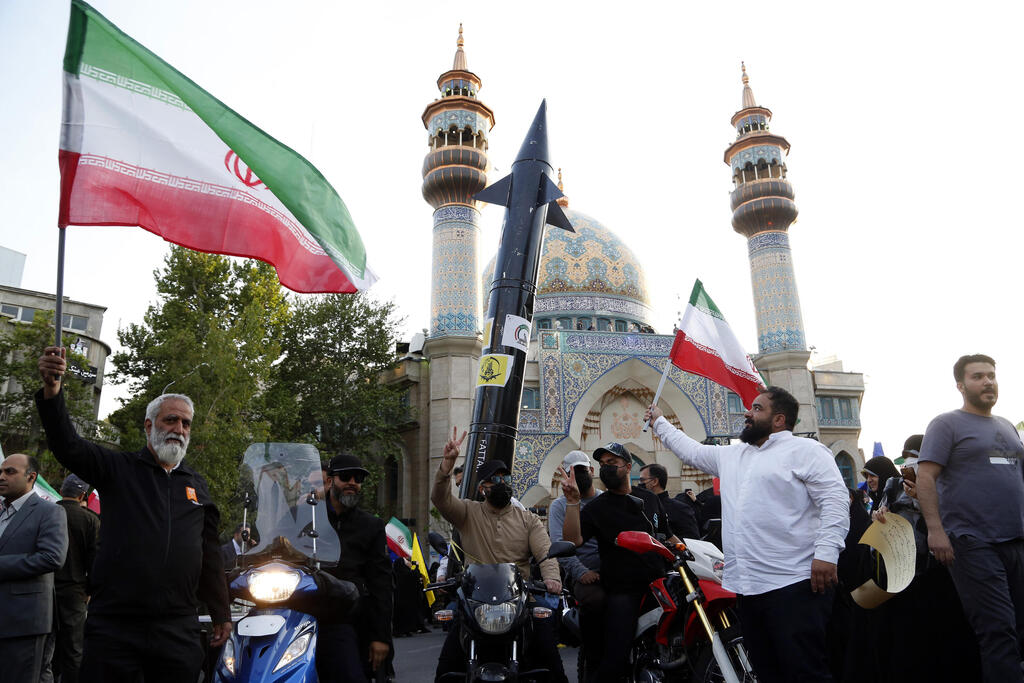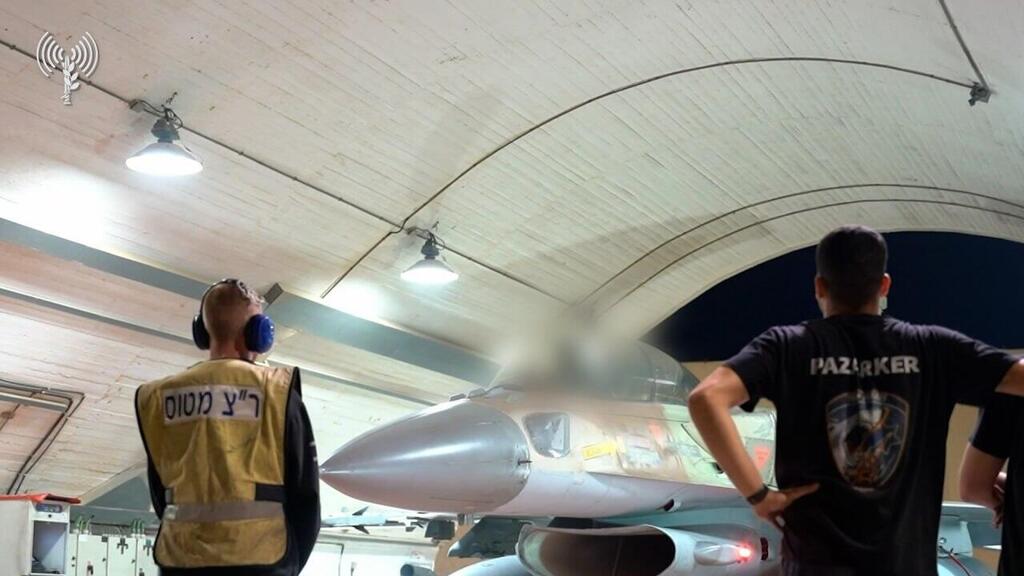Getting your Trinity Audio player ready...
IDF intercepts drones, missiles form Iran
(IDF)
It is now safe to assume that Israel would respond to the attack on its territory from Iran but the hope is that the response would yield strategic accomplishments to counter balance the price that Israel would be made to pay on the international front, in its relations with the U.S. and the regional coalition that exhibited its strength for the first time on Sunday and in terms of the security and psychological resources that would be needed.
Iran's attack, which aimed to cause strategic harm to the IDF's aerial and intelligence capabilities, was proof that Tehran was convinced that Israel was weak both in terms of its military and its civilians, while Iran grew in military strength sufficiently so as to enter into a direct conflict with Israel.
This is the result of the current shift in deterrence between Israel and Iran. The Islamic regime, although an extreme fundamentalist one, is also calculated and realistic in its decisions. Israel must therefore rebuild its deterrence and prove the Iranian leaders, wrong.
Iran's resounding failure on Sunday, contributed toward that aim but it was not enough. Israel must reinstate in the minds of the Iranian leaders, that attacking it directly, or via regional proxies, would exact a price.
Therefore, a response must not be rushed. It should come as a surprise. It would do no harm to have the regime anxious and the citizens waiting in long lines as the local gas pumps wondering if their government's support for Palestinians can justify their own suffering.
Another reason to avoid a rushed retaliation is the need to accurately identify a target. Israel does not want its retaliatory strike to ignite a regional war. The Biden administration, the leaders of the important European nations and countries in the region all demand restraint so that they too are not dragged into a war with Iran or its proxies.
The coalition that was formed to defend against the Iranian attack is a strategic asset to Israel and must be preserved. Therefore, Israel must take into its considerations what U.S. President Joe Biden and his people are saying, as well as what it would take to preserve that coalition that had stood by Israel when it was attacked.
The target and methods chosen in a retaliation must protect that coalition and enable Israel to continue its war in Gaza and primarily serve the release of the hostages held by Hamas, without delay.
2 View gallery


איראן טהרן מפגינים כיכר פלסטין אחרי מתקפת ה טילים ו כטב"מים על ישראל 15 אפריל
(צילום: EPA/ABEDIN TAHERKENAREH)
Israel must choose its targets with care and aim for its retaliation to result in destabilizing the regime. It can attack strategic Iranian instillations. There are tens of thousands, spread around the country including in major cities, that if struck, would have a major effect but would also cause collateral damage including civilian casualties, which would end the current support for Israel in the international community, and could start a regional war.
Alternatively, Israel could launch a cyber attack that would disable transportation infrastructure, airports, the electricity grid and some of the energy production.
Other targets that could be subject to attack are covert and may be struck in a Mossad operation that could be denied, including the targeting of senior officials who were involved in the attack on Israel. The Israeli intelligence agencies are familiar with Iran's vulnerabilities, of which there are many, but must be careful not to provoke an Iranian response that would start a broader war.
 Ron Ben Yishai Photo: Yair Sagi
Ron Ben Yishai Photo: Yair SagiAs I completed this article, I received a call from an unidentified number. The caller who had a slight Arabic accent told me in broken Hebrew to listen closely. "If you do anything stupid, we will destroy you, do you hear me well? We will destroy you," he said. "Tell your friends not to do silliness." This is another reason why Israel should take its time and cause the Iranians to worry.





